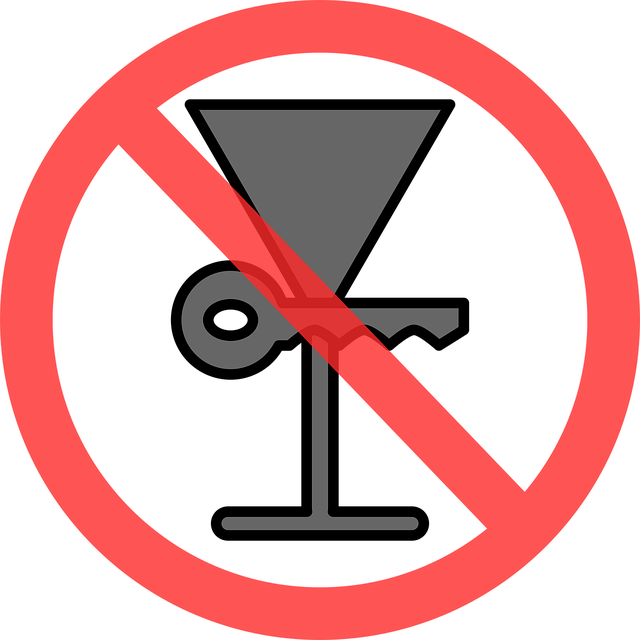Youth DUI Prevention Programs offer educational and rehabilitative support for teens convicted of driving under the influence. These programs aim to reduce repeat offenses by teaching safe driving practices, substance abuse prevention, and legal education. Insurers also play a role by offering specialized coverage options with reduced rates for participants, helping young drivers overcome financial barriers and improve long-term driving habits.
In the wake of a Youthful DUI (drunk driving under age 21), navigating insurance adjustments becomes a critical phase in the path to redemption. This article delves into the intricate process, exploring key aspects from understanding stringent penalties to the pivotal role insurance companies play in shaping young drivers’ futures. We dissect strategies for adjusting coverage post-offense and highlight supportive programs designed to foster responsible driving habits among youth. Additionally, we analyze the long-term implications on insurance rates and driving privileges, offering insights crucial for both individuals and Youth DUI Prevention Programs.
- Understanding DUI Penalties for Minors
- The Role of Insurance Companies in Youth DUI Cases
- Adjusting Coverage After a Youthful Offense
- Supportive Programs for Young Drivers Post-DUI
- Long-Term Impact on Insurance and Driving Privileges
Understanding DUI Penalties for Minors

DUI offenses among minors, often referred to as Youth DUI, carry severe consequences that can impact a young person’s future significantly. These penalties are designed to deter underage drinking and driving and promote responsible behavior. When a minor is involved in a DUI incident, they typically face legal charges, license suspension or restrictions, and potential insurance rate increases. The specific outcomes depend on various factors, including the jurisdiction and the specifics of the case.
Many states have implemented Youth DUI Prevention Programs to address this growing concern. These programs often include educational initiatives, counseling, community service, and strict monitoring to help at-risk teens understand the dangers of impaired driving. By participating in these programs, minors can avoid harsher legal repercussions and learn valuable lessons that could save lives in the future. Insurance adjustments post-DUI for minors may also involve specialized coverage options tailored to meet the unique needs of young drivers who have been involved in alcohol-related incidents.
The Role of Insurance Companies in Youth DUI Cases

Insurance companies play a significant role in youth DUI (driving under the influence) cases, as they are often involved in the financial consequences and adjustments following such incidents. When a young driver is convicted of DUI, their insurance rates can significantly increase due to higher risk profiles. This can be a considerable burden on the driver’s finances, especially if they are still in the early stages of their driving career.
Many insurance providers offer specialized programs aimed at youth DUI prevention, recognizing the unique challenges faced by young drivers. These programs may include educational workshops, defensive driving courses, and incentives for maintaining a clean driving record. By participating in such initiatives, young drivers can potentially reduce their insurance premiums and gain access to more affordable coverage, which is crucial for their financial well-being and long-term driving habits.
Adjusting Coverage After a Youthful Offense

After a youthful DUI offense, many young individuals and their families face significant challenges in navigating their insurance options. The immediate impact often includes heightened insurance premiums due to the added risk associated with driving under the influence. However, there’s hope in the form of Youth DUI Prevention Programs that offer opportunities for restoration and responsible conduct behind the wheel. These programs encourage participation in educational workshops, community service, and adherence to strict driving guidelines, all of which can positively influence insurance adjustments.
Over time, as individuals demonstrate commitment to safe driving habits through these programs, they may see improvements in their coverage accessibility and affordability. Insurers often recognize the efforts made by those actively working towards rehabilitation, leading to more favorable policy terms. This second chance allows young adults to rebuild their financial standing and driving record while fostering a culture of responsible youth DUI prevention.
Supportive Programs for Young Drivers Post-DUI

Many regions offer specialized support programs aimed at helping young drivers who have been involved in a DUI incident. These Youth DUI Prevention Programs typically focus on education, counseling, and mentorship to address the underlying factors that contributed to the irresponsible behavior. By providing resources and guidance, these initiatives strive to empower young individuals to make better decisions behind the wheel and foster a culture of responsible driving.
The programs often involve peer-to-peer support groups, where participants can share their experiences and learn from one another. They may also include training sessions on safe driving practices, substance abuse prevention, and legal consequences of DUI, ensuring that young drivers are equipped with the knowledge to make informed choices. These supportive measures play a crucial role in the rehabilitation process, helping to reduce repeat offenses and promote positive behavioral changes among teens and young adults.
Long-Term Impact on Insurance and Driving Privileges

The long-term effects of a DUI (Driving Under the Influence) conviction extend far beyond the immediate penalties. One significant consequence is the substantial impact on insurance rates and driving privileges, which can have a lasting effect on an individual’s financial stability and mobility. For young drivers who find themselves in this situation, the outcomes can be even more severe due to the presence of Youth DUI Prevention Programs and their potential for rehabilitation and education.
These programs often include mandatory insurance surcharges, which are significant increases in premiums designed to deter risky behavior and offset the higher claims costs associated with DUI cases. Additionally, driver’s licenses may be suspended or restricted for prolonged periods, making it challenging for young adults to maintain independence and access to employment opportunities. The combined effect can create a barrier to reintegration into society, emphasizing the critical need for comprehensive Youth DUI Prevention Programs that address both the immediate consequences of such incidents and the long-term challenges they present.
In addressing Youth DUI, a multifaceted approach is crucial. While understanding the penalties and the insurance company’s role is essential, supporting young drivers with post-DUI programs can significantly mitigate long-term impacts on their insurance rates and driving privileges. By providing resources and guidance through these challenging times, we not only foster responsible driving but also contribute to the overall goal of Youth DUI prevention programs.






